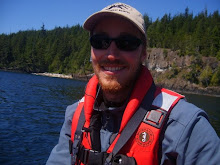 With March fast approaching, many of you are probably thinking about the latter of life's two certainties. That's right, the days are getting longer, the flowers are poking through the snow and accountants are sharpening their pencils in preparation for tax season. It's time to dig out your receipts, take stock of your finances and prey that you won't be audited when it's all over.
With March fast approaching, many of you are probably thinking about the latter of life's two certainties. That's right, the days are getting longer, the flowers are poking through the snow and accountants are sharpening their pencils in preparation for tax season. It's time to dig out your receipts, take stock of your finances and prey that you won't be audited when it's all over.Audit. The word alone is often enough to raise the blood pressure, especially if you've ever been involved in one. But audits are really an essential part of any financial accountability be it personal, business or government. In fact, there is a whole department within the Canadian government whose business it is to hold the administration accountable for its stewardship of public funds - the Office of the Auditor General.
This past Tuesday, the Commissioner of the Environment and Sustainable Development (who is responsible for audits that relate to environmental issues) released a report on a number of topics including Canada's Marine Protected Areas (MPAs) and how the federal government is living up to its commitments around them. The release of this report included a short video that does a great job of explaining the issue in about 3 minutes:
In the Commissioner's Perspective, at the beginning of the report, Scott Vaughn questions how Canada's environmental protection is keeping pace with our economic development. Canada is a trading nation and our economy is largely reliant on exports, including natural resources, as we have been in the past and will likely be in the foreseeable future. However, the past few decades have seen a growing realization among people and governments around the world that international trade and high levels of environmental protection go hand in hand. This is why our own government singed agreements like the Convention on Biological Diversity (which celebrated its 20th anniversary last year), which includes commitments to protect 10% of the world's ocean by 2020.
Over 20 years later, we have effectively protected only about 1% of our oceans and Great Lakes, while countries with similar economies and ocean industries have far exceeded the goal.
In a previous post, I talked about how much of our natural wealth is in the things that we don't export for profit: abundant and diverse wildlife, pristine landscapes, access to clean air, water and food. These things have value far beyond any monetary figure we could place on them - a value that will only increase with time. And as far as money goes, the Commissioner's report points out that protected areas can be a very effective (not to mention cost-effective) way of managing human activities that threaten these values. To use a tax analogy, they are like RRSP's for our natural capital.
The Commissioner's report highlights what many of us already knew: it's time for Canada to honour it's commitments to put its money where it's mouth is. Or should I say our money - it is tax time, after all.

No comments:
Post a Comment